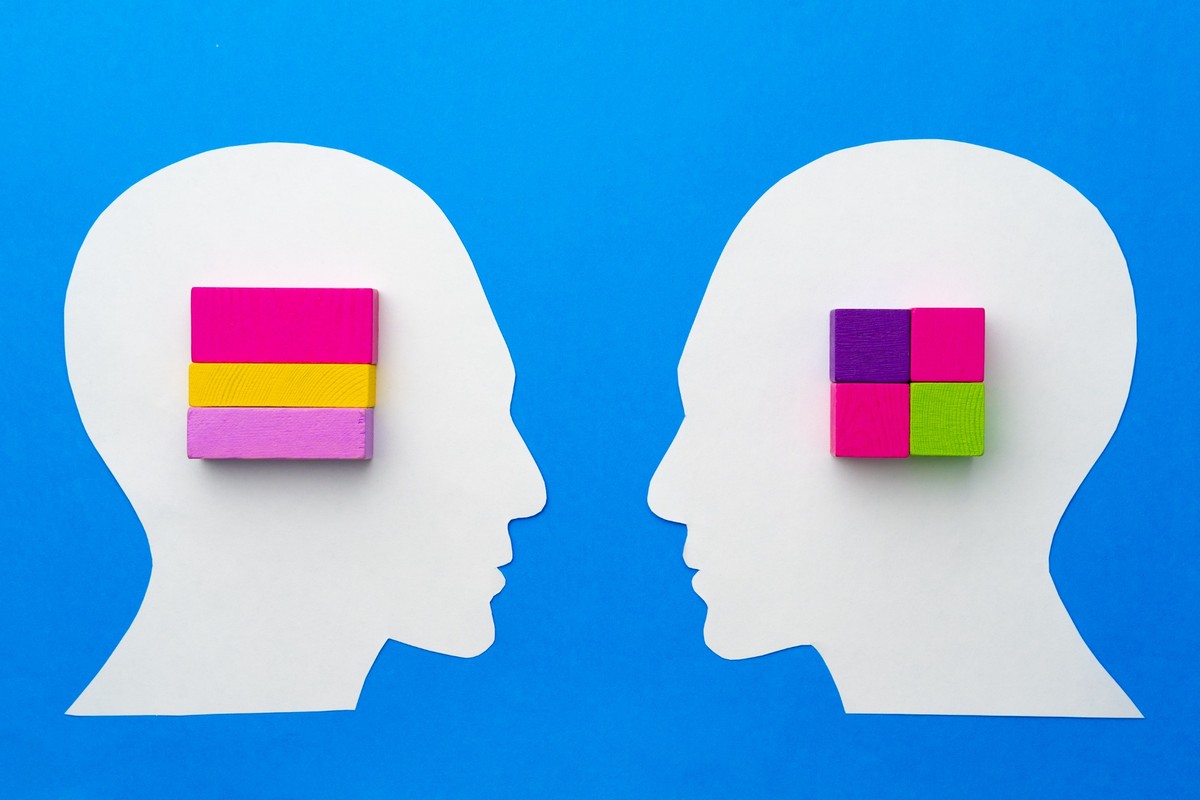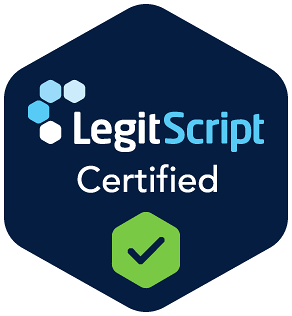
The Hardest Addictions to Quit: Understanding Challenges and Treatment Options
The Hardest Addictions to Quit: Understanding Challenges and Treatment Options
The first step of recovery from drug addiction is scary, challenging, and a promise to yourself to work on your well-being. You chose to accept that you need help to quit drugs or alcohol when you enter a drug or alcohol rehab program. Finding a safe, culturally sensitive substance use disorder treatment center that understands you is essential.
The Hardest Addictions to Quit: What Makes Them So Challenging?
The most difficult drugs to quit can make the recovery process challenging because your body and mind are dependent on the substance. Taking the necessary steps to quit safely requires finding and trusting professionals trained to provide you with the highest level of care. As you go through the recovery process, you will discover why overcoming addiction and its physical and psychological effects is so tricky.
What Defines the Hardest Addictions to Quit?
Substance use is unrelenting. It takes over your life, harms your relationships, and changes your body and brain. Trying to quit some substances is the hardest thing you may ever do. These substances have a hold on your entire being. They create a cycle that can leave you feeling like recovery is impossible. Spark Wellness's treatment programs guide you in understanding why they have a grip on you, how you can improve your decision-making skills, and how to discover your potential.
Physical Dependence vs. Psychological Dependence
Physical dependence is how alcohol or drugs affect your body. Psychological dependence is the effect drugs have on your mental well-being. Both play an essential part in helping you recover from addictive drugs.
Physical Dependence
Physical dependence is when you require one or more drugs to function on a day-to-day basis. The substance use disorder community makes a distinction between physical dependence and substance abuse. Physical dependence is not addiction. The increased or continued use can create a high tolerance for the substance, as both your body and mind adapt to it. The increased tolerance can make you feel you need higher doses or take it more frequently. This need for more euphoria and trying to recreate the high often becomes a habit. When you don't have access to what makes you feel good, you can have withdrawal symptoms.
Psychological Dependence
You may become psychologically dependent on drugs because you're trying to cope with feelings of stress, emotional pain, social anxiety, or trauma. Maybe you have anxiety or feel stressed when you have to socialize with people. You may drink before or during a social event because it makes you feel more fun, intelligent, and self-confident. However, alcohol is masking the issue worse and can, over time, become an addiction.
The Brain’s Reward System and Dopamine’s Role in Addiction
Your brain is the most complex because it serves as the central command site for both mental and physical well-being. It regulates body functions, shapes your behavior, and tells you how to process and react to situations. Without it, you couldn't breathe, enjoy your hobbies, or do other daily activities.
The brain contains millions of neurons that communicate with one another through neurotransmitters. These signals include endorphins and other neurotransmitters in your brain's reward system. Certain drugs can cause bursts of pleasure larger than the natural bursts you feel when doing activities you enjoy.
Surges of dopamine, a neurotransmitter connected to pleasurable activities, can be why you repeat an activity that makes you feel good. The burst of dopamine changes neural connectivity, making it easier to repeat the activity. This makes it easier for you to make the activity a habit.
Intense Cravings and Withdrawal Symptoms: The Body’s Reaction
When a drug changes your brain's neurons, it increases the chance that you will crave a substance. Soon, you may have cravings for the drug because your brain wants to repeat the surge of euphoria. Intense cravings are a primary symptom of substance addiction.
A craving for a drug is the result of long-term use. It produces an overwhelming need to use a drug and can disrupt your daily life. You may feel your thoughts are being controlled by the need to have a drink or use the drug you crave.
When you stop using a drug, your body and mind experience withdrawal. Withdrawal is a combination of psychological and physical symptoms you experience as the substance is stopped. The depth of withdrawal symptoms varies because of biological influences and the drug you use. Common withdrawal symptoms include:
- Nausea and vomiting
- Hallucinations
- Muscle cramps
- Anxiety
- Depression
The physical symptoms of withdrawal can last between days and weeks. However, the psychological effects, like depression or a feeling of unease, can last longer. You should talk to your doctor or enter a medical detox program before you stop using.
Top Hardest Drugs to Quit and Why
The grip drugs and alcohol have on your body and brain make stopping drug use challenging. Sometimes the withdrawal symptoms of the hardest drugs to quit are the reason you may relapse. Maybe the fear of withdrawal symptoms and relapse makes you wonder if quitting is worth it. Stopping your drug use through behavioral therapies can make a difference.
Opioids (Heroin, Fentanyl, Prescription Painkillers)
Opioids are powerful drugs. According to the Centers for Disease Control and Prevention (CDC), “Nearly 108,000 people died from drug overdose in 2022, and approximately 82,000 of those deaths involved opioids.” Healthcare workers are trained to spot potential opioid overdoses and use the care necessary to save lives. Continued use of opioids decreases your body's ability to make as many endorphins as it usually would. Over time, you develop a tolerance to the dose you're used to and need more.
- Prescription painkillers are often prescribed for injuries. However, even if they're used for short-term pain relief, some people can rely on the feeling they get when they take the medication.
- Heroin is a highly addictive drug made from morphine. A heroin addiction is one of the hardest addictions, if not the most complex drug addiction to overcome. The risks of increasing your dose or using heroin include death. Deaths from heroin are growing because it can be laced with fentanyl.
- Fentanyl, according to the CDC, can be up to 100 times more powerful than morphine. The two types of fentanyl are pharmaceutical fentanyl, a synthetic opioid made by pharmaceutical companies. The other type is illegally produced. It is a synthetic version sold unlawfully.
Benzodiazepines (Xanax, Valium, Klonopin)
Benzodiazepines are controlled substances that slow down your nervous system. Doctors often prescribe benzodiazepines to reduce anxiety. Some types of benzodiazepines include:
- Xanax: Xanax treats anxiety and panic disorders.
- Klonopin: Doctors prescribe Klonopin to treat anxiety, agitation, and seizures.
- Valium: Valium is used to treat alcohol withdrawal, seizures, and muscle spasms. It can also be used before surgeries or medical procedures.
The misuse of benzodiazepines is widespread and can lead to addiction. There is also an increased risk of an overdose or harmful reactions when combined with alcohol or opioid painkillers.
Methamphetamine and Crystal Meth
Methamphetamine (meth) is a potent synthetic stimulant. Doctors prescribe it for short-term weight loss or attention-deficit/hyperactivity disorder (ADHD). However, most methamphetamine is used illegally. When taken, it enters the brain quickly, creating an intense pleasure that lasts only briefly. The quickness of the euphoria creates a psychological dependence.
Methamphetamines are crystal meth when it looks like rocks or crystals that are shiny and bluish-white.
Alcohol Addiction
Alcohol addiction is when you have problems controlling your drinking, think about drinking constantly, or continue to drink despite harmful consequences in your life.
Alcohol is like other drugs because it has a powerful effect on your brain. It can create feelings of euphoria and push away negative thoughts. For this reason, you may use alcohol repeatedly because it helps relieve emotional issues. The changes alcohol makes on your brain's reward system can cause a reward deficit when you stop drinking.
Cocaine and Crack Cocaine
People use cocaine to increase their energy or emotions. When you use cocaine, you change your brain's function, which can diminish your decision-making abilities. Because cocaine is highly addictive and changes your brain's reward system, you may use it repeatedly despite knowing it can lead to severe health effects like stroke, heart attack, or death.
When cocaine is “cooked,” it is called crack cocaine. The name comes from the sound it makes when it's being made. The feeling of pleasure from using it lasts for about 15 minutes. This can create psychological dependence or addiction because you may keep using crack to feel euphoric again.
Nicotine and Smoking Cessation Challenges
Smokers who decide to quit may tell you it's the hardest thing they've ever given up. Nicotine is a highly addictive chemical that affects your psychological, physical, and social interactions. Nicotine crosses the blood-brain barrier, triggering the release of neurotransmitters and producing a pleasurable sensation.
Other Addictive Substances: Gambling, Sex, Spending
Not every addiction is connected with a chemical or substance. People can become addicted to gambling, sex, and shopping because of the dopamine that is released. Whether you win a bet, have a pleasurable sexual experience, or buy something that makes you happy, your brain releases dopamine. Over time, you may need to gamble more, spend more, or engage in risky sexual behavior to feel the same level of pleasure you did the first time.
Common Withdrawal Symptoms Across Addictions
It doesn't matter if you drink alcohol or use an opioid; the withdrawal symptoms for them are similar. For instance, you may experience delusions or have severe health issues. Sometimes you can have other symptoms, such as:
- Anxiety
- Depression
- Difficulty concentrating
- Hallucinations
- Nausea and vomiting
- Muscle spasms
Evidence-Based Detox and Treatment Programs at Spark Wellness
Ambulatory Detox – Safe and Supportive Detoxification
Ambulatory detox is a treatment program that allows patients to receive addiction treatment without being admitted to inpatient treatment. You can safely manage your withdrawal symptoms in a supportive, supervised, structured program that gives you the freedom to live at home.
Day Treatment (PHP) and Intensive Outpatient Program (IOP)
Day treatment and Intensive outpatient programs are addiction treatment programs that fit your needs. They allow the flexibility and support you need to progress your recovery journey. Our programs include holistic and evidence-based therapies that guide you in your addiction recovery.
Day Treatment
Day Treatment at Spark Wellness includes comprehensive care that recognizes your unique personality. Our day treatment program is an intensive, structured treatment program lasting several hours during the day. You will have several hours of group and personalized individual therapy during the day. You will also participate in holistic therapy and life skills sessions. The role of day treatment is to:
- Aid in developing increased functioning
- Find healthy ways to maintain your recovery when you leave us
- Understand your addiction
You can benefit from a day treatment program if:
- You can benefit from a holistic, evidence-based program that is culturally sensitive
- You're at risk of a relapse.
- Your mental health and substance abuse or alcohol abuse require professional help.
You can live at home while you attend our day treatment program.
Intensive Outpatient Program
You may not need a day treatment program to address your alcohol use disorder or substance use disorder. Instead, your recovery journey can include an intensive outpatient program (IOP). Being in an intensive outpatient program gives you the flexibility to go to work and live at home. You will attend day treatment, including therapy sessions at the center, for a few hours daily on specific days. Some of the benefits of an IOP are:
- You build a foundation and support system with your group members and therapists.
- Being immersed in your treatment lets you focus on building a strong treatment plan for your recovery journey.
- You have the support and acceptance of a recovery community.
Another benefit of an IOP is that you can live at home, go to work, or school.
Medication-Assisted Treatment (MAT) for Opioids and Benzos
Treating heroin or benzodiazepine addiction can require medication-assisted treatment (MAT). At Spark Wellness, we provide MAT so you can progress in your recovery journey. We combine behavioral therapies like cognitive-behavioral therapy (CBT) and holistic therapies with medications like methadone and buprenorphine. A combined approach is evidence-based and proven effective.
Dual Diagnosis and Trauma-Informed Care
Spark Wellness has professionals who are trained in helping you with your dual diagnosis or need for trauma care. We understand that SUDs are often connected with a mental health disorder. We work with you to form a treatment plan reflecting where you are now. We use behavioral and holistic therapies for a comprehensive, whole-body approach. Our patient-centric approach gives you the chance to have control over your recovery.
Holistic Therapies and Peer Support Programs
Holistic therapies are ways to replace harmful coping mechanisms with healthy ones. We encourage you to try therapies such as:
- Yoga
- Meditation
- Art
Each therapy guides you in recognizing your triggers and focusing on the present.
Aftercare and Alumni Engagement App
You're never alone in your recovery journey. Once you leave us, we're still here for you. You can participate in aftercare and alumni programs by downloading our app. You can continue building bridges between treatment and real life because your participation includes you in peer support groups.
How Spark Wellness Bridges the Gap Between Rehab and Real Life
We understand the power of being in a community; that's why you build a foundation for recovery from the moment you begin treatment with Spark Wellness. The discoveries and connections you make in individual and group therapy follow you into your real life. You take with you coping mechanisms that help you when you feel harmful emotions. When you develop an aftercare plan with your therapist, you will have resources like support groups included.
Frequently Asked Questions About Treatment at Spark Wellness
Do you offer dual diagnosis treatment?
Spark Wellness has therapists who are trained in dual diagnosis care. We know that there is often an underlying cause for SUD, and you may need mental health and substance use therapy.
What does ambulatory detox involve?
Ambulatory detox is designed for patients with mild or moderate detox symptoms that don't require inpatient treatment. This approach allows you to live at home, work, and still receive the support and medical care you need.
What housing options are available?
Sometimes, going home once you finish treatment is not an option for several reasons. We offer sober living if you need more support in your recovery journey. You can attend outpatient sessions while living in a safe, comfortable environment.
How does insurance and payment work?
Spark Wellness accepts most major insurance. When you contact us, one of our admissions team members will help you find out if your insurance covers substance use and mental health treatment. You can also let us know if you prefer to use another form of payment.
Spark Wellness - Oregon City uses patient-centered care, including holistic and behavioral therapies. We believe in your successful recovery journey.
The hardest drugs to quit require comprehensive behavioral care. Some are life-threatening when you decide to stop. For this reason, Spark Wellness offers detoxification therapy followed by day treatment or an intensive outpatient program. We provide evidence-based and holistic therapies that reflect the challenges of quitting substances like alcohol, opioids, and benzodiazepines. Our innovative treatment modalities and individualized treatment plans guide you to a life outside of outpatient treatment. You will be immersed in group, individual, and life skill programs that strengthen your support systems and coping skills. When you are seeking safety from an alcohol and drug abuse disorder, know that the knowledgeable therapists are here to support you. To learn more, call (971) 359-4753.
Recovery articles for you

Anxiety vs Depression: How to Tell the Difference and Why It Matters for Treatment

When Weekly Therapy Isn’t Enough: Signs You May Need a Higher Level of Mental Health Care



